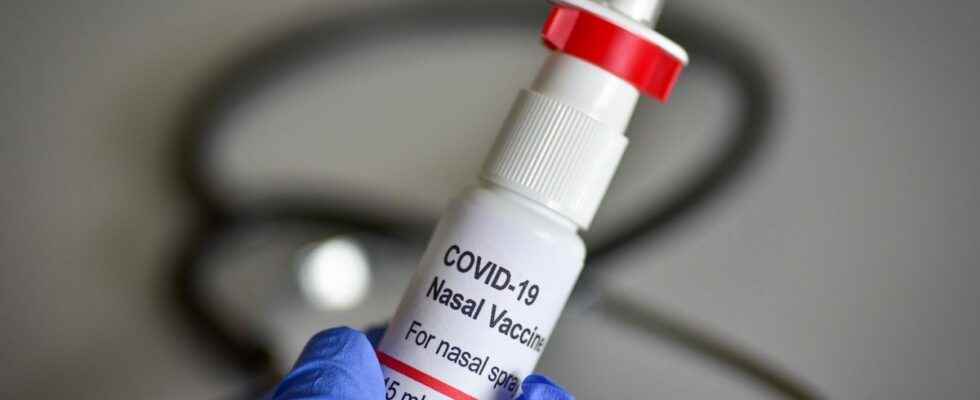Posted ,
Reading 2 mins.
Scientific research has not finished mobilizing to fight against the global epidemic of Covid-19. Even if vaccines prove to be very effective and a drug, PAXLOVID is available, researchers continue to test solutions to stop the infection. This is the case of a team of specialists from Cornell University and the University of Sherbrooke who, while trying their anti-Covid nasal spray, discovered a molecule with unexpected properties.
American and Canadian researchers have infected genetically modified mice with the Covid-19 virus. They then gave them a dose of the contents of the nasal spray each day for four days. As a result, the 10 treated mice survived the infection against 20% of the untreated mice.
A molecule tested on a mouse model
During these experiments on a mouse model, the laboratory mouse, the researchers identified a molecule called N-0385 capable of acting in prevention in healthy subjects, but also in a curative way in subjects “patients”. Indeed, it would seem that this particle can protect against a possible infection by the coronavirus, because it would prevent the virus from attaching to the nasal cells and thus from entering the respiratory tract.
In addition, taken within 12 hours after exposure to Sars-Cov-2, it would relieve the symptoms associated with the disease.
The results, published in the prestigious scientific journal Nature, also suggest that the molecule is effective against the coronavirus variants of concern, such as the Alpha, Beta, Gamma and Delta strains. It could also confer protection against the Omicron variant and its variants, which nevertheless remains to be proven.
As a reminder, the nose is one of the entry points affected by the coronavirus before contaminating the body. This is why several studies are underway to test different nasal sprays.
Consult a GP online
When is an anti-Covid nasal spray for men?
To date, the American University research team’s nasal spray has only been tested on mice. Trials are still in the early stages and the authors emphasize the importance that at this stage there is no evidence to predict its effectiveness in humans.
In addition, the airways of mice are much shorter than those found in humans. This is an essential criterion, since it is essential to know if the nasal spray has the capacity to reach those of humans, but also to remain effective throughout the process, and this, until reaching its goal.
Nevertheless, this research has a certain interest, because the discovery of this kind of molecule, like N-0385, makes it possible to improve scientific knowledge and consequently, therapeutic or preventive possibilities.
Indeed, if N-0385 is able to block the virus by preventing it from entering the body, the work of the curative treatment taken in addition could be facilitated.
It’s time to raise funds to consider starting possible clinical trials on humans. It is not the first nasal spray that has been tested, but for the time being, none have been put on the pharmaceutical market.
